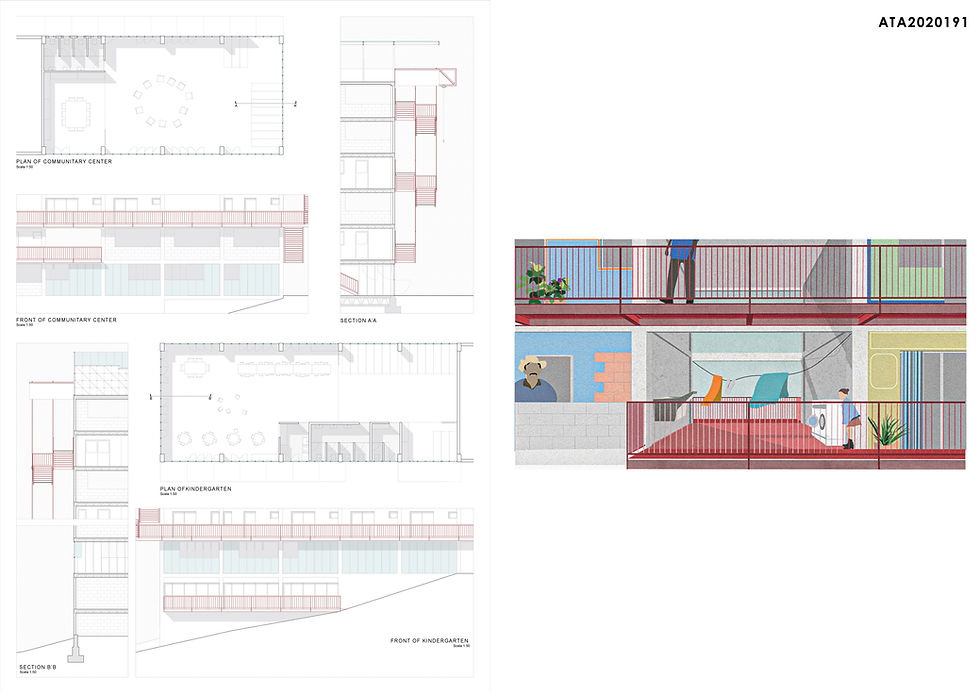REASENTAMIENTO EN SITIO, RESIDENCIAL PROJECT FOR POTOSI COMMUNITY - BOGOTA, COLOMBIA.
- FRANCESCO GUGLIOTTA
- Feb 18, 2021
- 2 min read
Ciudad Bolivar is an informal neighborhood of 700,000 inhabitants built in the 40s, and constantly growing, in the vast suburbs of southern Bogota. On this site, we have been investigating for months through field activities conducted in collaboration with the National University of Colombia. The present research is the product of this work and it takes the form of a project proposal for a residential complex that represents the last phase of a long and articulated process of urban policy called "reasentamiento".
The first families who settled the territory were originally from rural areas of the country and driven by the common hope of meeting better living conditions in the capital. The urbanization processes, still in progress today, are of an informal nature, and over time have given rise to a parallel city, where conditions of widespread unsafety and poverty make Ciudad Bolivar one of the most extensive and populous examples of Slum in the continent. On the current border of the urbanized area is Potosi, a district of ten thousand inhabitants south of the town, where a panorama of shacks clinging to the mountains has developed since the early 80s, growing and consolidating between two small water streams. Precisely the presence of these two creeks and their swelling during the rainy season puts the adjacent houses in a state of danger.
The institutions have identified what is an area at risk of collapse, where a possible landslide would involve 206 families and their "informal" homes. In response to all this, the request of the community associations active in Potosi, in collaboration with the U. National of Colombia. an urban policy project was developed that aims to resettle homes at risk locally. We participated in the final phase of this urban project, proposing an architecture capable of solving the problem, at the same time preserving the security and spatial justice required. To do so, we conducted typological studies, linked to social sustainability and the exigence to build a structure as consistent as possible with the existing socio-economic landscape. A complex can favor positive urban practices, such as commerce and self-construction, and avoid others, such as the marginalization of some realities. The dense network of social interactions, which the inhabitants of Potosi themselves call community, is what we have constantly drawn on to identify needs and find the appropriate tools to remedy them. The project has therefore become an opportunity for an entire community to respond to a critical situation, thus generating a new point of reference within the neighborhood, in support of active citizenship.









"REASENTAMIENTO EN SITIO"- YOU DONT SPEAK ENGLISH??